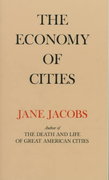Question
MACROECONOMICS 1. The marginal propensity to consume is 0.6, what is the final increase in national income of an increase of investment of RM10 million?
MACROECONOMICS
1. The marginal propensity to consume is 0.6, what is the final increase in national income of an increase of investment of RM10 million?
A. RM25 million
B. RM4 million
C. RM40 million
D. RM60 million
2. What is NOT an essential characteristic of money?
A. It must have intrinsic value.
B. It must be generally acceptable as a means of settling debts.
C. It must serve as a unit of account.
D. It must be limited in supply.
3. Which stage of the business (trade) cycle is most likely to be characterised by an increasing negative output gap?
A. boom
B. recession
C. recovery
D. trough
4. The total level of planned expenditure in the economy is known as __________.
A. aggregate demand
B. aggregate expenditure
C. long run aggregate supply
D. short run aggregate supply
5. Expansionary monetary policy is to:
A. Increase government expenditures & decrease interest rates.
B. Increase money supply & decrease interest rates.
C. Increase government expenditures & decrease tax rates.
D. Increase government expenditures & increase tax rates.
6. What is an example of fiscal policy aimed at increasing aggregate demand in an economy?
A. increasing expenditure by firms on skills training programmes for unskilled workers
B. increasing the commercial banks' lending ability
C. reducing the rate of income tax for all income earners
D. reducing the rate of interest on loans to manufacturing companies
7. When the inflation happens, which of the following would NOT be the possible cause?
A. increase in aggregate demand
B. increase in cost of production
C. increase in unemployment rate
D. decrease in direct tax
8. Which policy is likely to promote economic growth?
A. A policy to decrease female participation in the labour market.
B. A policy to encourage investment.
C. A policy to reverse environmental degradation.
D. A policy to promote imports.
9. Which is NOT a kind of exchange rate system?
A. Barter exchange rate.
B. Fixed exchange rate.
C. Floating exchange rate.
D. Managed floating exchange rate.
10. What is the current account of the balance of payment consists of?
i. Net Asset
ii. Net Export
iii.Net Liabilities
iv.Net Transfer Payment
A. i and ii only.
B. i and iii only.
C. ii and iii only.
D. ii and iv only.
11. Which economic indicators are NOT used to measure economic growth?
i. Gross domestic product.
ii. Inflation rate.
iii. Labour force.
iv. Unemployment rate.
A. i, ii & iii.
B. i, ii & iv.
C. i, iii & iv.
D. ii, iii & iv.
Step by Step Solution
There are 3 Steps involved in it
Step: 1

Get Instant Access to Expert-Tailored Solutions
See step-by-step solutions with expert insights and AI powered tools for academic success
Step: 2

Step: 3

Ace Your Homework with AI
Get the answers you need in no time with our AI-driven, step-by-step assistance
Get Started


